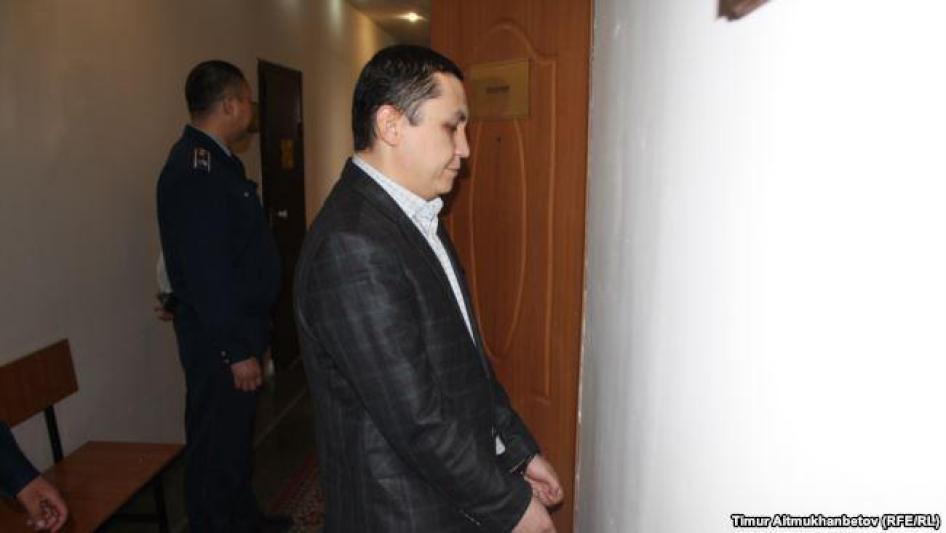For the “crime” of encouraging workers to stay on strike, and for advising them about how to do so, on April 7 a court in Kazakhstan sentenced trade union leader Nurbek Kushakbaev to jail for two and a half years.
I’ve known Kushakbaev, 34, since 2011, when I started researching labor rights abuses in western Kazakhstan, a country whose economy is driven by its petroleum industry. When I first met him, he hadn’t been involved in trade union activism all that long. He described to me his efforts to learn and act within the law to resolve worker grievances with companies. He also talked about the repercussions – for example, company and state interference in union activity, threats and harassment of union members, and dismissals – he or others faced for trying to defend their rights.
I met Kushakbaev again in late 2014 when I was investigating the effects of Kazakhstan’s new restrictive trade union law. The government claimed, disingenuously, that the new law would better regulate employer-employee relations, a priority after extended labor strikes in western Kazakhstan ended in December 2011 with a violent clash between striking oil workers, other people, and law enforcement that left at least 12 dead and more injured. The government’s claims didn’t fool the International Labour Organization, which has repeatedly called on Kazakhstan to amend the law to bring it in line with international standards on freedom of association.
The law introduced burdensome union registration requirements, and has made it very difficult for some trade unions to register. This was true for Kushakbaev’s trade union as well as the national-tier Confederation of Independent Trade Unions of Kazakhstan, which was shuttered by the government in January. In 2014, authorities also amended the criminal code, making it a crime to “call on workers to continue a strike that has been declared illegal by a court.”
Kushakbaev’s imprisonment, the material damages of US$80,000 the court ordered him to pay, and the two-year restriction on carrying out any civic activism are wholly disproportionate and unjust sanctions. Kushakbaev shouldn’t spend another day locked up, and the Kazakh government should cease its blatant efforts to dismantle the independent trade union movement in Kazakhstan.










